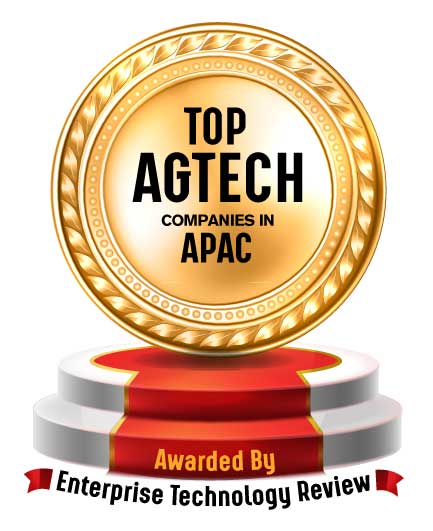
4 Most Intriguing Technologies in Agriculture
Enterprise Technology Review | Thursday, September 10, 2020

New technologies have the potential to take agricultural productivity to new heights.
FREMONT, CA: Modern-day agriculture is driven by continuous innovations in digital tools, data, and collaborations between farmers and researchers across the public and private sectors. Today, it is possible for farmers to utilize data and technology to improve crop yields and keep themselves up-to-date with cutting edge techniques of farming. Here are some examples of how modern technology can be used to improve agriculture.
There are several great tools for testing soil health that come from medicine. With DNA-mapping technology, farmers can test microbiomes and organic matter to analyze soil health metrics so that they can better care for their soil. Soil DNA testing can identify the presence of insects, nematodes, bacteria, viruses, and other pathogens in a field to predict and prevent damage. These tests also generate a wealth of 4 Most Intriguing Technologies in Agriculture of data that can be used for soil health analytics.
• Smart Sensors
Sensors have become cost-effective and beneficial for agriculture. There is a variety of innovative applications of sensors for farming. A farmer can insert a sensor into grain to monitor moisture levels. Sensors can also be used in planters to evaluate soil density or for yield mapping and harvest documentation. Sensor tech lets farmers o be more data-forward. Sensors allow farmers to collect unprecedented levels of data about land––which means better remediation when things go wrong and greater control over things.
Check Out : Agri Business Review , Retailtechinsights
• Farming as a Service
Subscription and pay-per-use farming services, or farming as a Service (FaaS), have grown more popular in recent years. Many startups today are based on FaaS models. FaaS is the best model for farmers and landowners navigating the uncertainty of changing market and commodity rates. By converting upfront costs into variable ongoing costs, FaaS allows farmers to make data-driven decisions about productivity and efficiency, which is especially helpful for farmers operating on tight margins.
• Self-Driving Tractors
In farming, a driverless tractor is far less risky. It has no vehicles or pedestrians to contend with. With GPS, farmers can use geofences to keep tractors on course and automatically shut them off if they drive off course. With the right automated equipment, a farmer can easily scale operations from a few thousand acres to many thousand acres.
See Also: Top Healthcare Technology Companies
Read Also




![Steve Caudill, Director, Agriculture Sector, Digital Operations, CNH Industrial [BIT: CNHI] Challenges In Off-Road Vehicle Autonomy](https://www.enterprisetechnologyreview.com/newstransfer/upload/370x420_N8cI.jpg)
![Jeff McConathy, VP of Engineering of Consumer Services, Trulia, a part of Zillow Group [NASDAQ: Z] Leveraging GIS to Empower House Hunters in their Search](https://www.enterprisetechnologyreview.com/newstransfer/upload/370x420_m7fx.jpg)




